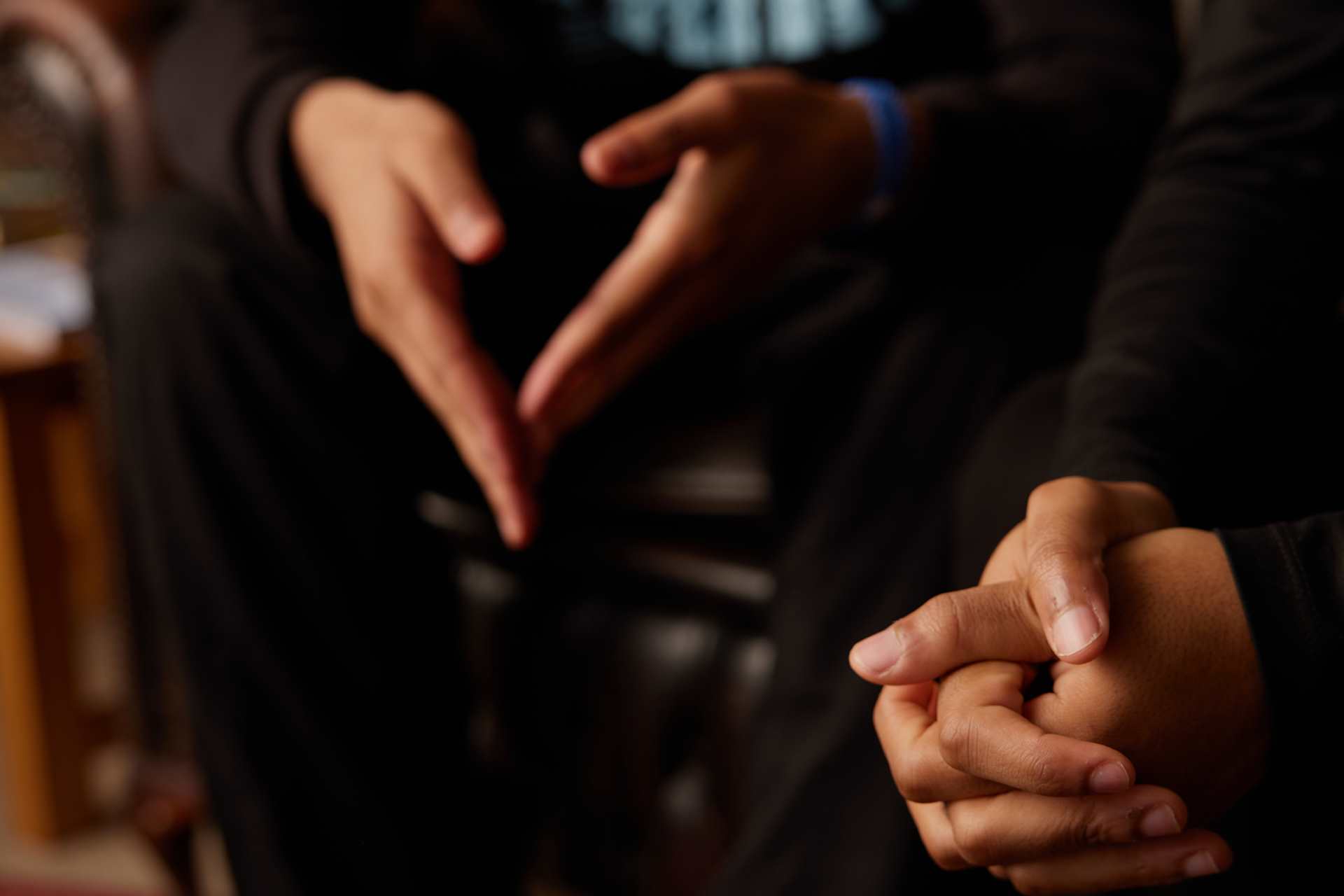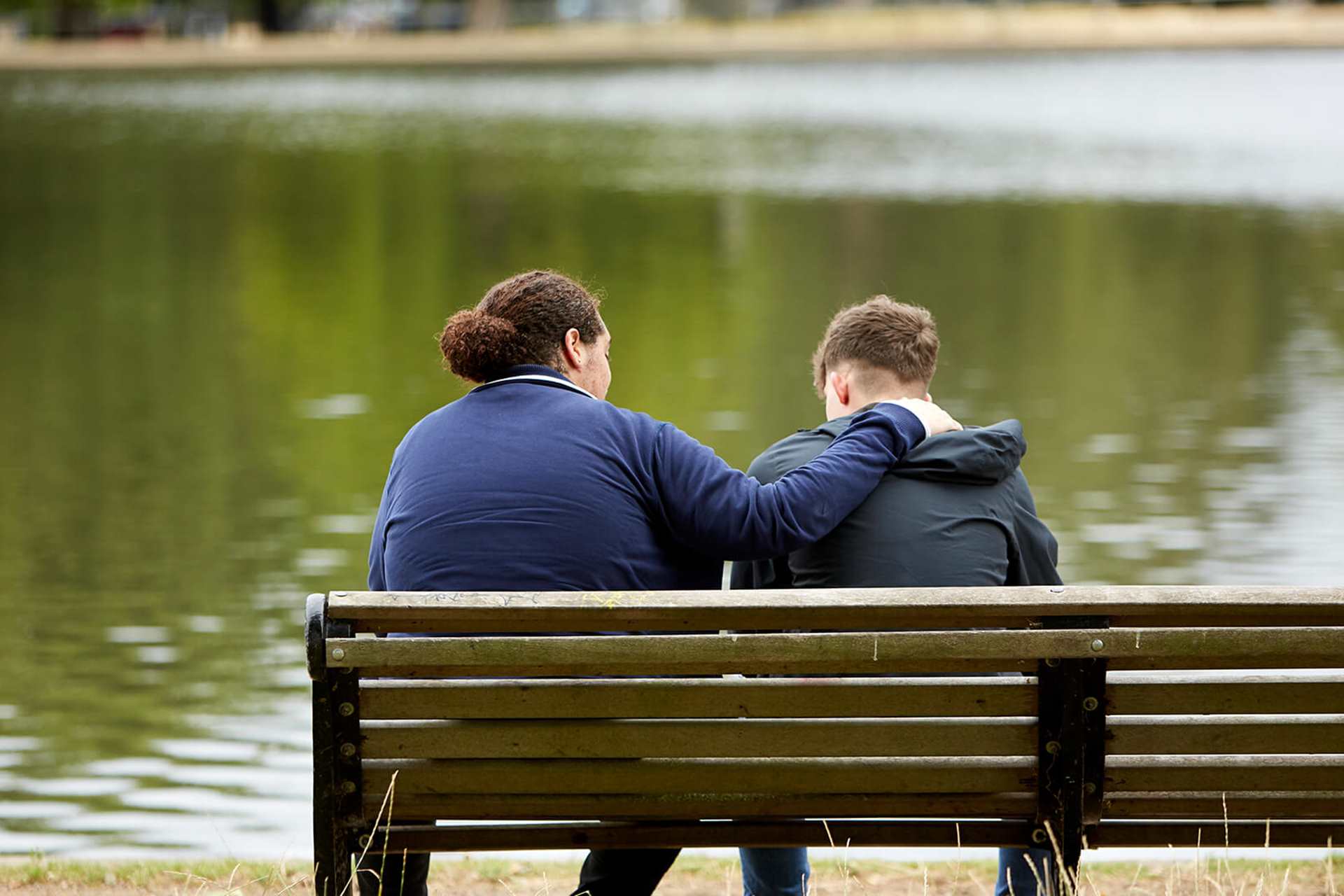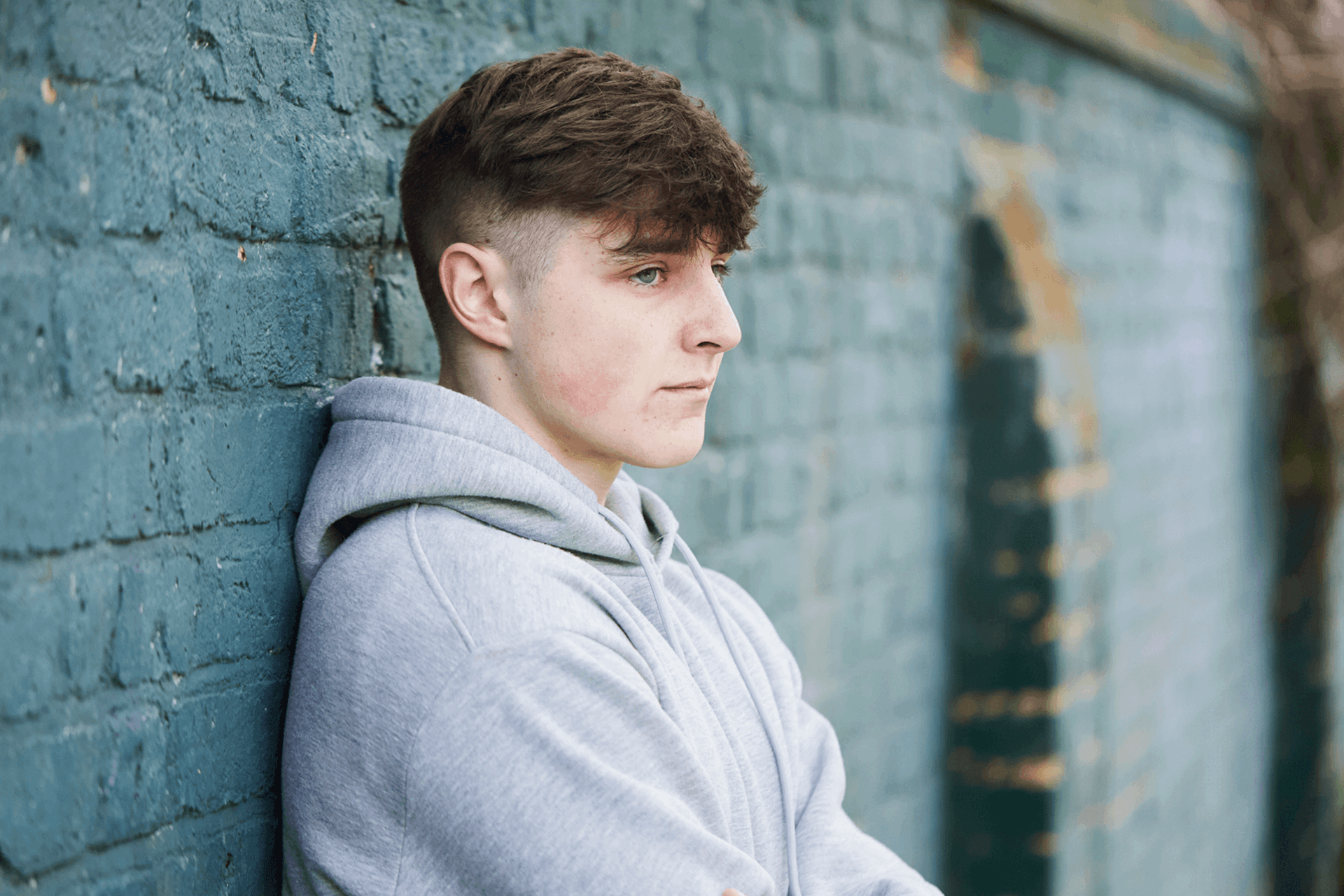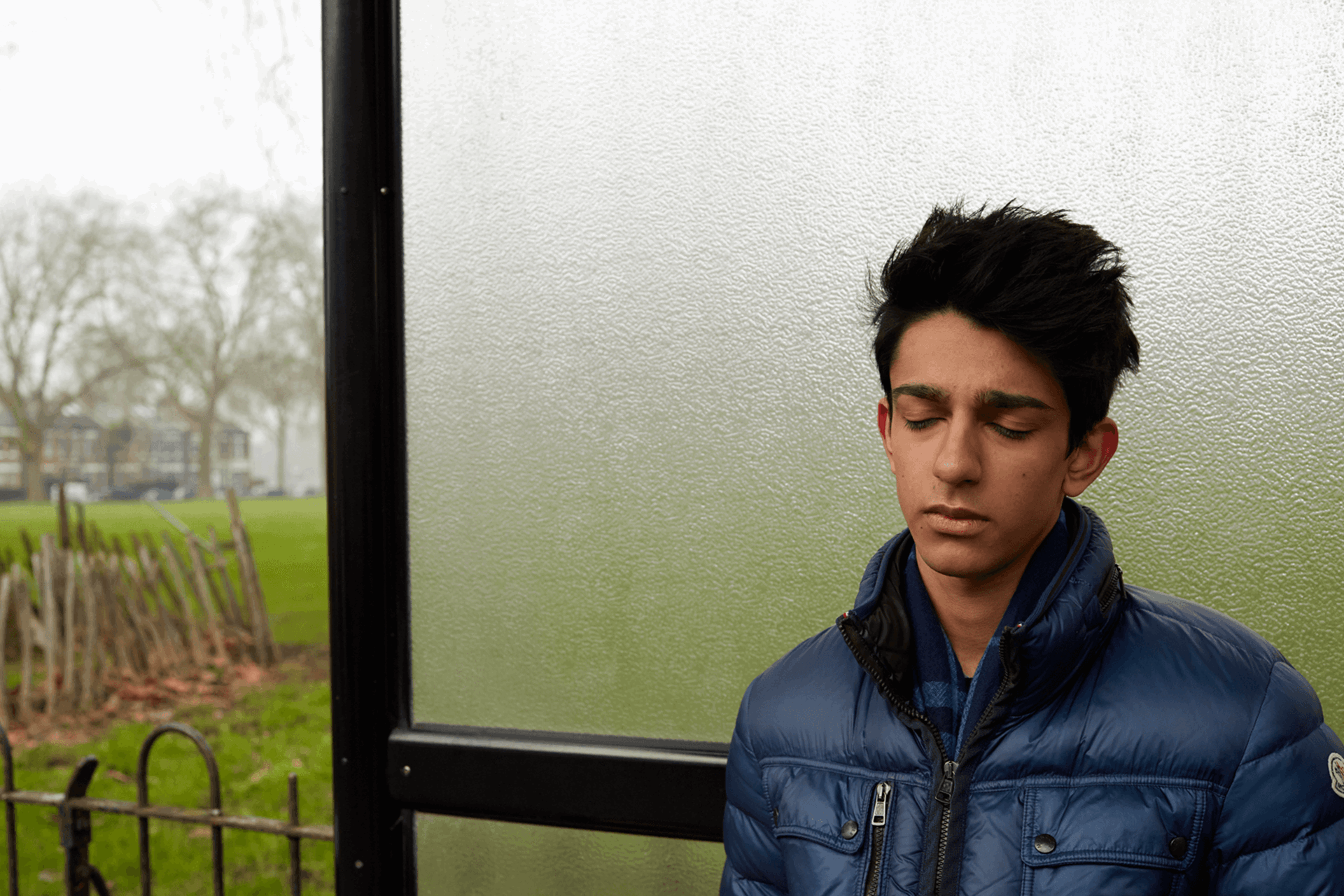Topics mentioned: suicidal feelings, grief and loss, trauma, anger, depression
About: Matilda shares their experience of losing someone to suicide, the complex feelings of their grief, and finding help through their GP and a support group.
This blog contains reference to suicide. Please do not read on if you think the content may be triggering for you. If you are currently struggling with your mental health, please visit our find help page for information, advice and guidance on where to get support.
I was told the day he died that I shouldn’t let his death define me, but that was impossible.
“What doesn’t kill you makes you stronger.”
This was never a phrase I paid much mind to before going through a traumatic event. It was something teachers said to kids at school to deal with bullying or something someone said to fill the strange, empty void when talking about your feelings got too heavy.
But now, it makes me angry. It makes me question why someone would assume that going through a traumatic event couldn’t leave someone in pieces.
I was always a sensitive kid, crying at anything; I sometimes feel like I've reverted back to this stage in my life. I blame society's idea that crying is childish.
I lost my brother, Oskar, to suicide in June 2021 while he was at university. He was 21, the age I am now. I was told the day he died that I shouldn’t let his death define me, but that was impossible.
I can pretend to be fine and normal, but all I am, all my grief, is a pot of water bubbling over, and no one is turning down the heat.
“A sibling is a friend for life” is a quote used in heart-warming films, but all it does is cause me to fall apart.
I remember learning about the five stages of grief: denial, anger, bargaining, depression and acceptance. How I wish it were this simple.
Then I learnt that the standard period for grief is two years, so why am I still here, ricocheting between the first four stages? I can pretend to be fine and normal, but all I am, all my grief, is a pot of water bubbling over, and no one is turning down the heat.
-
Death by suicide is different from other grief. All grief is painful, but if someone dies by accident, illness or age, you have a clear explanation; you understand what happened and what led to the tragedy. But with suicide, I feel stuck, trapped on a spiral staircase of “whys?” and “what ifs?”
There isn’t a right way to process the loss left by suicide, and there is no deadline.
My grief won't get smaller, but my life will grow around it.
At first, I was afraid to accept the gap my brother left, in case it magically made me forget about him, but I know that my feelings will be something I have forever.
My grief won't get smaller, but my life will grow around it. I’ll have days where it doesn’t feel so big, and I’ll have others where it's all I can think about.
-
I find myself shocked that the people close to me, like my boyfriend, my friends, colleagues and classmates, sometimes forget I'm grieving. But it isn’t something they think about. It doesn’t plague their mind 24/7; it isn't the first thing they think of when they wake up, and it isn't what they think about when a holiday approaches while they sing, “Have a merry Christmas!”
I find myself getting mad, thinking:
“How dare you forget while I’m trapped on the day he passed away.”
But it isn’t their fault; no part of me wants them to understand how I feel and what I’ve been through.
There is no harm in asking if it's okay to ask about the person they have lost.
I wish they would ask about him, though, to allow me to share the memories I hold. I wish they knew that they didn’t need to dance around his name as if saying it three times would cause the ground to open and swallow me up. Many people who have lost a sibling, no matter the cause, love to talk about them, but everyone is different.
There is no harm in asking if it's okay to ask about the person they have lost.
-
Losing my brother at 18 has defined my young adulthood and my time at university. I became depressed and gave up on a lot of my hobbies and was only doing the bare minimum of my coursework. I would regularly go days without talking to anyone, days of poor sleep and regular nightmares, and it was only when I started to struggle with suicidal thoughts of my own that I decided to reach out to a professional.
My GP was extraordinarily welcoming and patient with me; she explained the different options of support I could receive.
The support I received has allowed me to be open with myself and how I feel.
I decided on Talk Therapy, where I was seen within two weeks of being referred. I then received fantastic support and compassion from a therapist who referred me to a counsellor.
I have also found support through a group called Survivors of Bereavement by Suicide (SOBS), which holds monthly meetings across the UK to support people bereaved by suicide.
The support I received has allowed me to be open with myself and how I feel. Grief is a rollercoaster. There isn’t a day that goes by that I don’t think of my brother and what our lives could have looked like had he been here, but I find ways to allow him to live through me and my art, writing, acting and livelihood.
I find ways to allow him to live through me and my art, writing, acting and livelihood.
More information and advice
We have tips and advice to help you find the support you need. Take a look at our guides.
Where to get help
However you're feeling, there are people who can help you if you are struggling. Here are some services that can support you.
-
Survivors of Bereavement by Suicide (SOBS)
Offers support for people over the age of 18 who have lost someone to suicide.
- Opening times:
- 9am - 9pm, Monday - Friday
-
Samaritans
Whatever you're going through, you can contact the Samaritans for support. N.B. This is a listening service and does not offer advice or intervention.
- Opening times:
- 24/7
-
Childline
If you’re under 19 you can confidentially call, chat online or email about any problem big or small.
Sign up for a free Childline locker (real name or email address not needed) to use their free 1-2-1 counsellor chat and email support service.
Can provide a BSL interpreter if you are deaf or hearing-impaired.
Hosts online message boards where you can share your experiences, have fun and get support from other young people in similar situations.
- Opening times:
- 24/7






